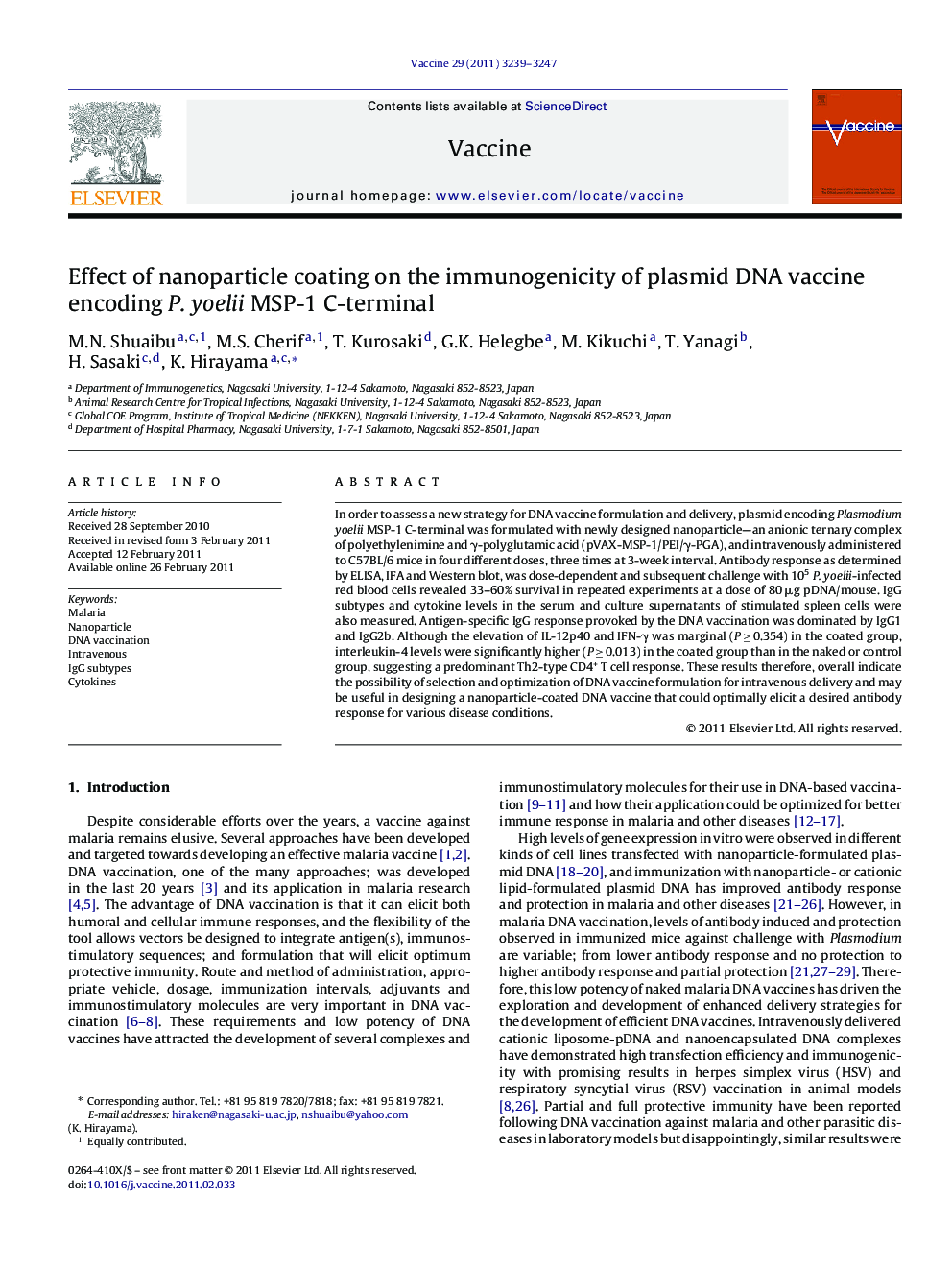| Article ID | Journal | Published Year | Pages | File Type |
|---|---|---|---|---|
| 10968909 | Vaccine | 2011 | 9 Pages |
Abstract
In order to assess a new strategy for DNA vaccine formulation and delivery, plasmid encoding Plasmodium yoelii MSP-1 C-terminal was formulated with newly designed nanoparticle-an anionic ternary complex of polyethylenimine and γ-polyglutamic acid (pVAX-MSP-1/PEI/γ-PGA), and intravenously administered to C57BL/6 mice in four different doses, three times at 3-week interval. Antibody response as determined by ELISA, IFA and Western blot, was dose-dependent and subsequent challenge with 105P. yoelii-infected red blood cells revealed 33-60% survival in repeated experiments at a dose of 80 μg pDNA/mouse. IgG subtypes and cytokine levels in the serum and culture supernatants of stimulated spleen cells were also measured. Antigen-specific IgG response provoked by the DNA vaccination was dominated by IgG1 and IgG2b. Although the elevation of IL-12p40 and IFN-γ was marginal (P â¥Â 0.354) in the coated group, interleukin-4 levels were significantly higher (P â¥Â 0.013) in the coated group than in the naked or control group, suggesting a predominant Th2-type CD4+ T cell response. These results therefore, overall indicate the possibility of selection and optimization of DNA vaccine formulation for intravenous delivery and may be useful in designing a nanoparticle-coated DNA vaccine that could optimally elicit a desired antibody response for various disease conditions.
Related Topics
Life Sciences
Immunology and Microbiology
Immunology
Authors
M.N. Shuaibu, M.S. Cherif, T. Kurosaki, G.K. Helegbe, M. Kikuchi, T. Yanagi, H. Sasaki, K. Hirayama,
